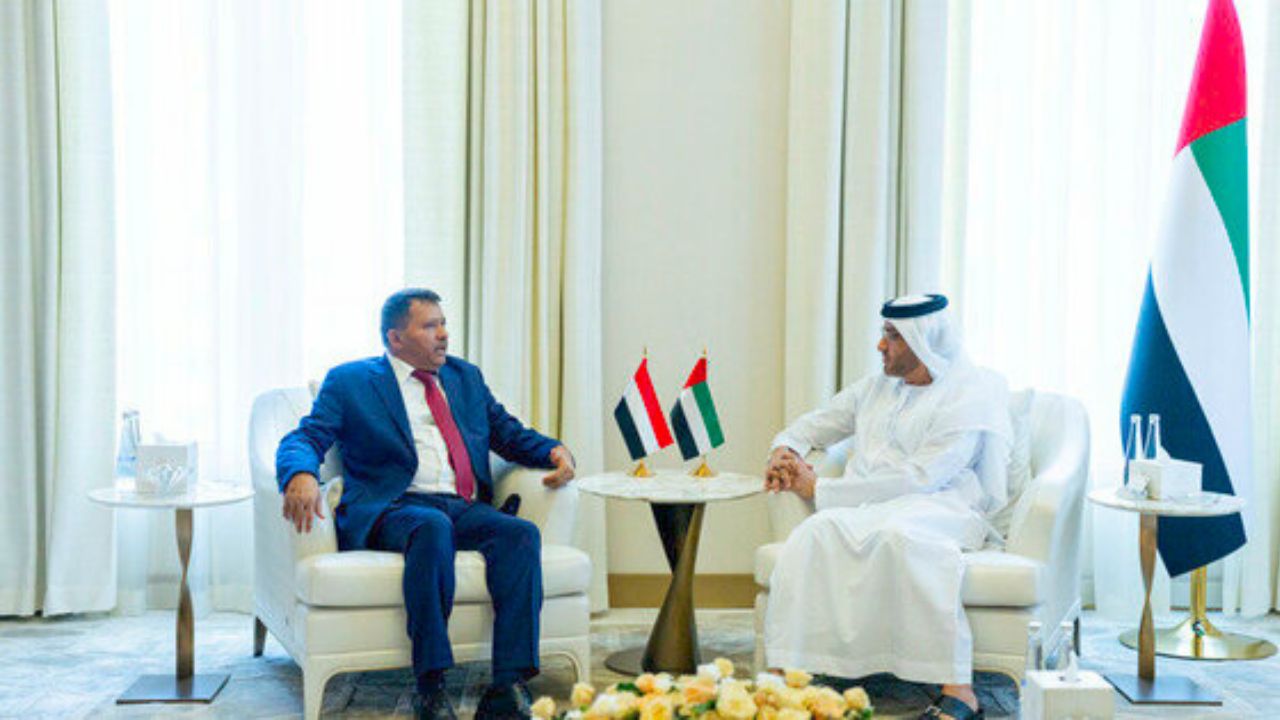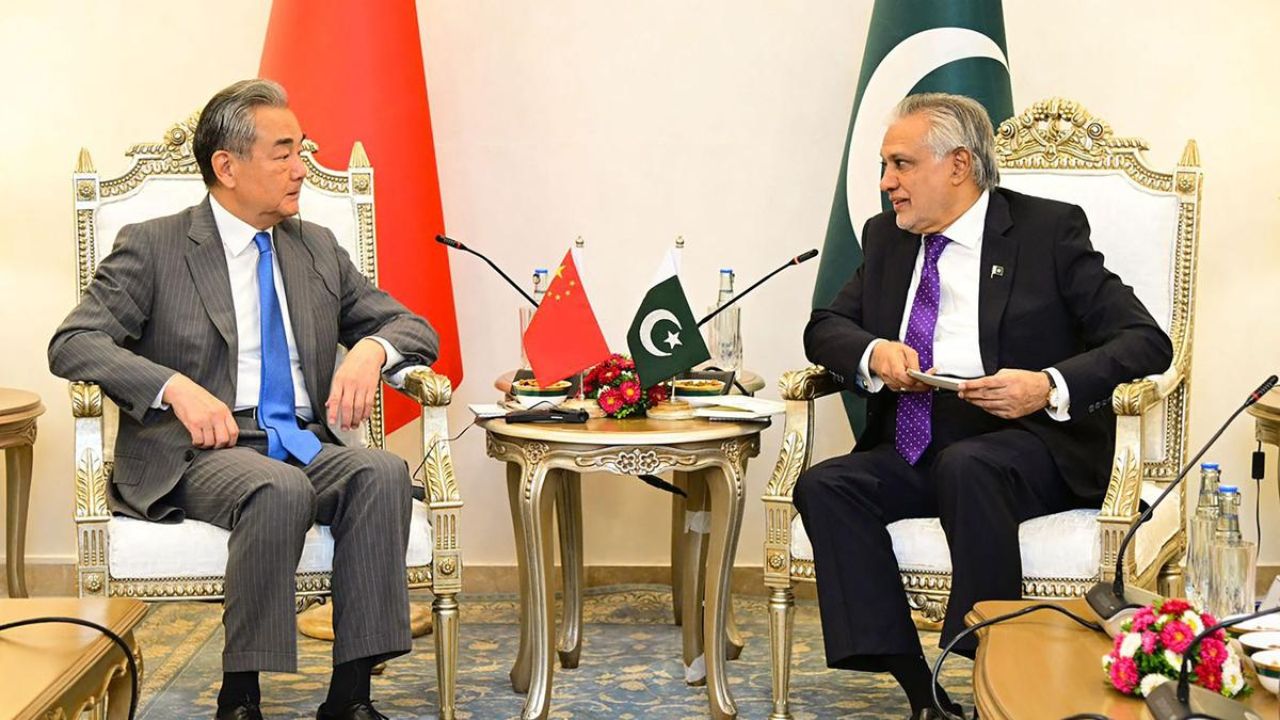
UAE and Yemen Strengthen Legal and Judicial Cooper
UAE and Yemen attorney generals met in Abu Dhabi to strengthen legal ties, enhance public prosecutio

Photo:AFP
Pakistan and China have committed to further strengthening their economic partnership and launching new projects under the China-Pakistan Economic Corridor (CPEC), a key initiative of China’s Belt and Road Initiative (BRI). Officials said the two countries aim to deepen cooperation in infrastructure, industry, agriculture, and technology to support Pakistan’s economic development.
Chinese Foreign Minister Wang Yi visited Islamabad on Thursday and met with Pakistan’s Finance Minister Ishaq Dar at the Ministry of Foreign Affairs. According to a joint statement, the two leaders agreed to start new projects through CPEC. While the details of these projects have not been made public yet, analysts believe they could include further road and railway construction, energy projects, and industrial parks.
CPEC: A Vital Link in China’s Global Strategy
The China-Pakistan Economic Corridor is one of the flagship programs of China’s Belt and Road Initiative, which is designed to connect Asia with Africa, Europe, and the Middle East through a network of roads, ports, railways, and energy projects. CPEC links China’s western Xinjiang region with Pakistan’s strategic southwestern port of Gwadar on the Arabian Sea.
Since its launch, CPEC has brought billions of dollars in Chinese investment to Pakistan. Key projects have included highways, railway lines, and power plants that aim to improve Pakistan’s infrastructure and energy supply. Gwadar port, in particular, is a centerpiece of CPEC, providing China with direct access to the Arabian Sea for trade and energy shipments.
Security and Safety Concerns
One of the main challenges for CPEC has been the safety of Chinese workers in Pakistan. In the past, separatist groups in Balochistan and other regions have targeted Chinese engineers and laborers. During the meeting, Wang Yi urged Pakistan to continue ensuring the security of Chinese personnel. Pakistan has already increased protection measures at key CPEC sites, including Gwadar, to safeguard workers and ongoing projects.
Expanding Cooperation Beyond Infrastructure
In addition to infrastructure projects, both China and Pakistan have agreed to deepen collaboration in other areas such as science, technology, industry, and agriculture. These efforts are expected to provide Pakistan with not only physical infrastructure but also technological support and industrial growth, potentially creating jobs and boosting the economy.
Economic Significance for Pakistan
China has been a close ally and major financial supporter of Pakistan, especially during times of economic crisis. Pakistan has faced challenges like high debt, inflation, and slow economic growth, and Chinese investment under CPEC is seen as a critical support mechanism. Experts say that expanded CPEC projects could improve trade connectivity, energy reliability, and overall economic stability.
Regional Diplomacy and Strategic Moves
Wang Yi’s visit to Pakistan followed a trip to neighboring India, where he held talks to stabilize relations between the two Asian giants. In addition, just a day before meeting Pakistani officials, Wang Yi and Ishaq Dar visited Kabul for a trilateral dialogue with Afghanistan’s Taliban rulers, focusing on political and economic cooperation. These diplomatic efforts underline China’s increasing involvement in South Asian affairs and its push to maintain regional stability.
Potential Impact on Trade and Investment
The new CPEC projects are expected to attract further foreign investment to Pakistan and enhance trade opportunities with China and other countries in the region. Gwadar port, for example, is positioned to become a major trade hub, potentially handling goods not only from Pakistan but also from China, Central Asia, and the Middle East. Analysts believe this could boost Pakistan’s exports, generate employment, and strengthen its strategic importance in the region.
Challenges and Expectations
While the expansion of CPEC offers significant economic opportunities, challenges remain. Security concerns, political stability, and economic management will play key roles in determining the success of these projects. Both Pakistan and China have pledged to address these challenges through close coordination and active monitoring of projects.
Officials and experts note that CPEC is more than just a collection of infrastructure projects. It represents a long-term partnership between China and Pakistan, aimed at strengthening economic ties, regional connectivity, and strategic collaboration. The renewed commitment from both countries indicates a shared interest in using these projects to enhance trade, technological exchange, and regional cooperation for years to come.
Looking Ahead
As Pakistan and China move forward with new CPEC initiatives, both nations are expected to prioritize infrastructure development, technology collaboration, and worker safety. The ongoing partnership is likely to have far-reaching effects not only on Pakistan’s economy but also on China’s influence in South Asia and the broader region. For Pakistan, CPEC remains a vital lifeline for economic growth, while for China, it represents a key component of its global Belt and Road strategy.
The new round of agreements and discussions between the two countries signals a strengthened relationship, with potential benefits for trade, employment, and regional connectivity. Observers believe that CPEC could serve as a model for international cooperation in infrastructure and economic development, setting the stage for deeper China-Pakistan collaboration in the coming decade.